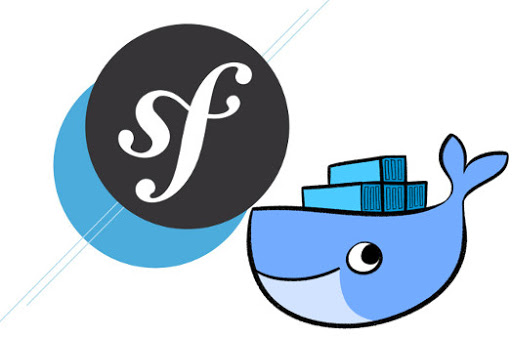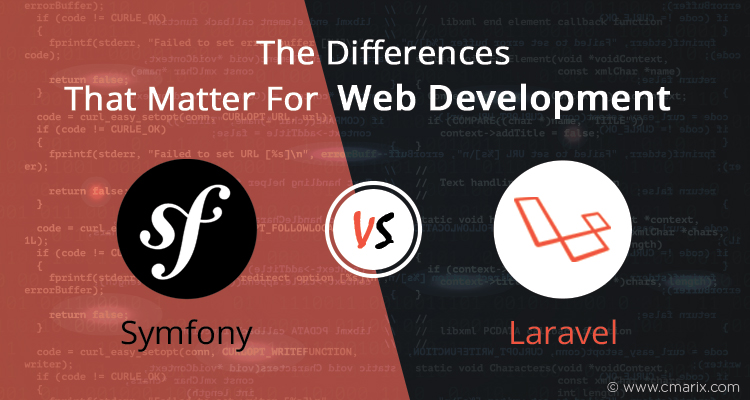In case of making a competitive choice among the top PHP development frameworks, Symfony will give a tough challenge to CodeIgniter and Laravel. All three are extremely popular but Symfony has a clear edge over the other two frameworks.
Like it’s the cool and sonorous name, Symfony is a flexible framework that comes loaded with a comprehensive package and component library from where developers can choose the essential PHP features they need for their project.
There are several other key advantages that made Symfony so popular as a leading PHP framework. But before explaining these reasons, we need to take a quick look at the definition and key value proposition of the framework.
What Exactly is the Symfony Framework?
Symfony is a dynamic PHP framework to build complex and feature-rich web apps across the niches. The framework comes loaded with powerful features and functionalities, well-articulated architecture, and a robust developer community. The framework is particularly known for its great performance, agility, and tried and tested MVC architecture that works well with different patterns of object-oriented programming.
The latest version of the framework, Symfony 2 supports PHP 5.3.2 version. This Symfony version also supports several leading databases MySQL, MariaDB, PostgreSQL, SQLite, and several others.
On the downside, the framework is slower than the CMS solutions available in terms of development speed for building websites. The framework can also build different modules that work really fast and easily support different business tasks.
Before explaining the key reasons to choose Symfony for web development, let us have a quick look at the key differences between Symfony and other PHP frameworks.
- Symfony vs Yii and Laravel
When compared to these two frameworks, Symfony may be a little more grounded, especially if the project involves a lot of complexities.
- Symfony vs Zend:
Symfony when compared to Zend, offers a more expressive and well-articulated architecture. Though both are equally flexible and well equipped, Symfony comes loaded with a more robust design.
Lastly, in comparison to most other PHP frameworks, Symfony is used by a larger number of global companies and web projects including Dailymotion, Yahoo, Drupal, Ted, BlaBlaCar, Photobucket, and many others.
7 Best Reasons to use Symfony for Web Development
Optimum Flexibility
Symfony is a highly organised, well-equipped PHP framework that offers practically every dynamic feature that web projects of different complexity level needs. Symfony offers the two most important aspects for web development, respectively Bundles, and Components. These two aspects ensure optimum flexibility in building web projects.
The bundle is quite similar to plugins offering decoupled, reusable, and configuration-friendly code blocks that ensure optimal modularity for a development project.
Components, on the other hand, help to carry out all routine development tasks by incorporating custom modules that work independently of the architecture. Markets with huge demand for small business websites prefer Symfony particularly because of this modularity. It is not hard to guess why small firms consult Symfony Development Company India for their web projects.
Both Bundles and Components offer great help to developers in terms of keeping architecture dependencies in the web project to a minimum. They are handy to incorporate code changes without any risk of breaking the underlying code. This is why Symfony-based websites can easily adapt to a multitude of changes and a variety of user scenarios for building a highly flexible app.
Optimum Scope of Customisation
Symfony framework is loaded with an array of customizable features and functionalities that developers and enterprises can choose for their web projects as per the requirements. This helps the PHP-based web development to be as user-centric as the enterprise needs.
On the other hand, in terms of scalability Symfony has the advantage thanks to its advanced OOPS service architecture. Symfony allows customization for both full-stack and limited-stack development through the custom framework. A large web project with multilayered and complex features can be built from scratch and alternatively for a small project with specific features you can develop your own custom Symfony framework.
Unmatched Scope of Innovation
Everything that you generally expect from a ready-to-use web framework is actually offered by Symfony. It allows faster development, and flexibility with custom options and reusable components. Apart from all these, Symfony also emerged as the framework that constantly encouraged innovations.
The best thing about Symfony is that it allows implementation ideas from other development languages. For example, you can incorporate features like dependency injection which is common to the Java ecosystem. Symfony also conceptualised the
Web Debug Toolbar to boost productivity. The feature was shaped following other frameworks.
Read more: Laravel vs Symfony: The Differences That Matter For Web Development
Mature MVC Architecture
MVC architecture in the case of the Symfony framework is more mature and well-articulated to build web projects that are highly scalable. Symfony depends on the MVC protocol as its very core architecture and the established practices are maintained throughout a project to maintain all files in Model, View, and Controller.
In the case of Symfony, the MVC architecture offers optimum flexibility as developers can easily segregate the Model (business logic layer) and View (user presentation layer) to ensure enhanced maintenance.
Huge Resources
When you use Symfony, you can actually never become fully alone just because you gave plenty of developer community support or direct support from the company to help you in case of all development issues and problems.
With Symfony, you can find documentation for everything and many developers regularly upload their work for others to take guidance and learn. All these resources will continuously provide active help throughout the web project.
Symfony is Ideal for Large Enterprise Projects
If you are wondering which will be the best PHP framework for your large and multifaceted web project, we will recommend Symfony. Since it is great for full-stack development, enterprise projects are delighted with the extensive scope of customization it offers.
On the other hand, even for small web projects focused on handling a handful of tasks, Symfony can be a great framework. The availability of standard bundles and lightning-fast start time in this respect give Symfony an added advantage.
Lastly, Symfony can also be chosen by the not-so-big startups if they want to depend on a highly scalable technology that can address their growth ambitions and expansion plan over the course of time.
Read more: Web Development: A Short Guide To Decide About The Right Technology For Your Startup
Robust Community Backing
Although almost every framework these days claims to have a large community at their side, often the claims don’t reflect the actual reality. This is where the framework can claim to stand out with a truly big and highly proactive community ready to offer help and address issues faced by other Symfony projects.
When it comes to seeking online help for your Symfony project, you can get guidance and help from many developers active on GitHub and StackOverflow who are ready to answer questions. You can use suggestions, get help for creating a custom bundle and get back with issues you faced. Symfony community is one of the best in terms of problem-solving help for the developers.










